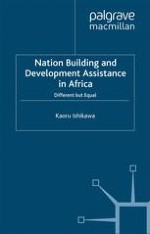1999 | Buch
Über dieses Buch
Sub-Saharan Africa seems to be forgotten in the post-cold war era. But Kaoru Ishikawa's analysis of Africa's history and its political and economic development suggests that a brighter future is in prospect for the nations of Africa. The African nations hosted dynamic societies prior to the slave trade era, and many of the obstacles to their future prosperity and dynamism have been removed. The focus of the book is on how African countries and the international community beyond Africa can work together to realise this potential and build on recent improvements, notably in health and the position of women in society. The ability of South Africa - no longer an international pariah to be a locomotive for growth is assessed.
Anzeige
